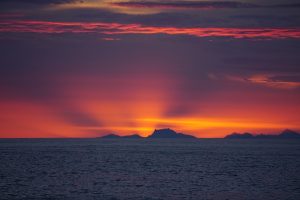 On March 23rd 2018, the University of Bristol hosted the IsoGlace workshop about novel isotope systems in glaciated environments. The workshop was organised to coincide with a visit from University of Bristol Benjamin-Meaker fellows Ellen and Jon Martin, from the University of Florida Gainesville, and featured talks from glaciologists and geochemists about how we can use isotopic measurements to understand glacial processes today and in the past, with a view to how these systems might change in the future.
On March 23rd 2018, the University of Bristol hosted the IsoGlace workshop about novel isotope systems in glaciated environments. The workshop was organised to coincide with a visit from University of Bristol Benjamin-Meaker fellows Ellen and Jon Martin, from the University of Florida Gainesville, and featured talks from glaciologists and geochemists about how we can use isotopic measurements to understand glacial processes today and in the past, with a view to how these systems might change in the future.
Jon Hawkings, from the Bristol Glaciology Centre, and Liz Bagshaw from Cardiff University kicked off the day with glaciologists’ views of the questions that are out there, which isotope geochemistry could (potentially) answer. We then had a line-up of talks and flash presentations on different isotope systems from participants hoping to answer questions about glacial weathering, nutrient fluxes and the impact on biology, both today and in the past using climate archives.
The talks featured a veritable feast of the periodic table, and included:
- Emily Stevenson (Cambridge) – Iron isotopes in proglacial systems
- Amber Annett (Southampton) – Iron fluxes and radium isotopes in nearshore/marine systems
- Laura Robinson (Bristol) – Uranium-series isotopes and coral archives of glacial meltwater fluxes
- Phil Pogge Von Strandmann (UCL) – Magnesium isotopes and carbonate weathering
- Jon Martin (Florida) – Strontium isotopes, weathering vs. water mass mixing in the Watson river system
- Tina van de Flierdt (Imperial) – Size fractionated hafnium and neodymium isotopes in Greenland sediments
- Ellen Martin (Florida) – Palaeoclimate archives of lead isotopes and glacial meltwater fluxes.

The presentations were followed by horizon scanning discussions on the key questions, and how we might be able to address them through future innovations and collaborations.
The university welcomed visitors from all around the UK, including colleagues from Southampton, UCL, Imperial, Nottingham and Cambridge. The day was a great success, and everyone left brimming with ideas!
Many thanks to the Jean Golding Institute and the Cabot Institute at the University of Bristol for funding, and to the School of Geographical Sciences for the use of their lecture theatre and facilities.
Blog written by Kate Hendry, Reader in Geochemistry from the School of Earth Sciences. K.Hendry@bristol.ac.uk

